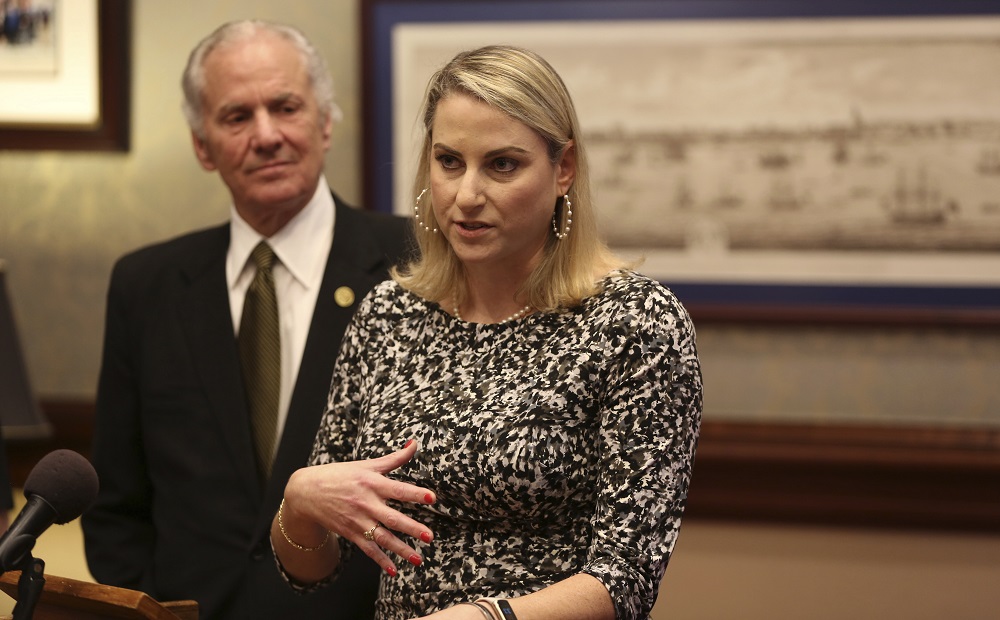COLUMBIA, S.C. — South Carolina Gov. Henry McMaster said this week that he is appointing an attorney who has temporarily steered the state’s struggling Department of Juvenile Justice to be the agency’s next permanent leader.
Richland County attorney Eden Hendrick has helmed the agency since September, following the departure of former executive director Freddie Pough, who left under fire by lawmakers.
“She’s done a magnificent job since then,” McMaster said at a news conference. “We could not do any better than to allow Director Hendrick to bring her time and talents full-time into this position.”
Hendrick has restructured agency’s leadership, modernized facilities, instituted sign-on and retention bonuses at the agency to try to fill correctional officer vacancies and asked lawmakers for funding to move mentally ill youth out of detention facilities they are illegally housed at, she said.
“Reforming DJJ will be a complicated and difficult process that will take time,” Hendrick said. “I am optimistic and inspired about the change that has occurred in the past five months I’ve been there, and I’m confident that this trend will continue.”
Hendrick previously worked as an attorney for the Department of Social Services and handled family court cases for the Fifth Circuit Solicitor’s Office.
Pough, Hendrick’s predecessor, stepped down following a scathing state audit, a no-confidence vote by state senators and a walkout by correctional officers at the Broad River Road Complex in Columbia.
The report conducted by the Legislative Audit Council found a number of issues, from an increase in violence at agency facilities to students missing GED testing because they were locked up in isolation units. Staffing and transportation shortages also meant some youths were not receiving adequate and timely medical care.
In 2020, the U.S. Department of Justice ordered the state to make changes to one of its juvenile prisons or face a lawsuit, according to a federal report. Federal investigators found the agency was violating the civil rights of incarcerated youths, from failing to train staff to using “punitive, prolonged” isolation units that left youths confined to small, dark cells for 23 hours a day.
The Senate must still confirm Hendrick’s appointment.
































